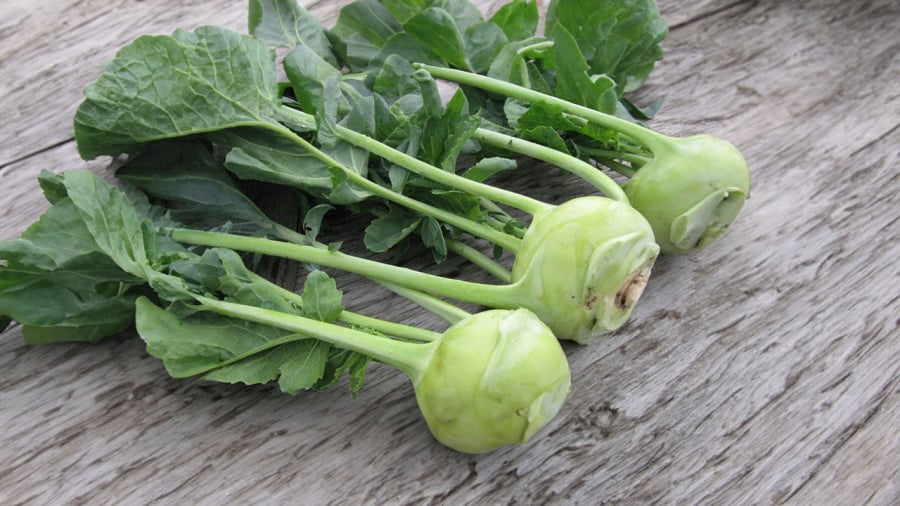Parsnips are a type of winter vegetable and are very delicious, so they are favored by many people. Moreover, in traditional medicine, parsnips have many benefits. The nutritional composition of parsnips includes main components such as albumin, sugar, fiber, calcium, phosphorus, iron, vitamin C, and niacin.
In traditional medicine, parsnips have a cooling nature with a slightly bitter taste and have the effects of reducing cough, relieving thirst, detoxifying, diuretic, anti-inflammatory, and supporting gastric diseases. In Eastern medicine, parsnips are used to treat conditions such as urination with blood, pimples, and excess yang energy.

The great benefits of parsnips:
Good for digestion: Parsnips are rich in fiber, which helps to improve digestion and maintain the health of the intestine. Parsnips also play an important role in maintaining a balance of beneficial bacteria in the digestive system and preventing constipation. Therefore, parsnips help to supplement nutrition, reduce the risk of gastrointestinal diseases, hemorrhoids, and colon cancer.
To maintain a healthy digestive system, it is recommended to eat parsnips because they have an excellent fiber content. Fiber helps the digestive system function properly by maintaining the health of the intestines and colon. It also plays an important role in maintaining a balanced amount of beneficial bacteria in the intestines. All these factors help reduce the risk of gastrointestinal diseases, hemorrhoids, and colon cancer.

Weight loss support: Because parsnips contain a lot of water, 91% of which is water and they are rich in fiber and low in fat, you can include parsnips in your diet for better weight loss.
Cancer prevention: Parsnips have a high concentration of phytochemicals, especially glucosinolates, which are considered important antioxidants. Therefore, parsnips are believed to have a supportive effect on cancer patients.
Cooling and detoxifying: Parsnips are also rich in vitamin C, potassium, and vitamin B6, so according to experts, parsnips are considered a food that helps cleanse the blood and kidneys, eliminate toxins from the body, and facilitate digestion.
Good for mothers and fetuses: Because parsnips have a cooling nature and are very nutritious, eating parsnips helps mothers prevent constipation and supplement nutrition for the fetus.
Blood pressure regulation: Parsnips contain a lot of potassium, so they help dilate blood vessels and reduce the tension of the circulatory system, thereby supporting blood pressure regulation.
In addition, parsnips are a good type of root vegetable that helps supplement calcium, magnesium, and iron, supporting adults and children in increasing calcium levels and enhancing immune function.

Although parsnips have many benefits, there are some groups of people who should limit their consumption of parsnips:
People with gastric problems, children should not eat raw parsnips: Many people like to make parsnip salad, but according to experts, children and people with gastric problems should avoid eating raw parsnips because they are difficult to digest and can increase the risk of gastric pain. Parsnips should also be consumed in a moderate amount to avoid blood depletion.
People with thyroid problems: Parsnips, like many other cruciferous vegetables, contain goitrogens, which are plant compounds commonly found in cabbage vegetables such as cauliflower, cabbage… that may cause goiter. Therefore, people with thyroid dysfunction should limit their consumption of parsnips.
When eating parsnips, pay attention to eating in moderation, spacing them out over days to avoid health depletion.
When seasoning parsnips with salt, avoid making them too salty, as it can harm the parsnips.
Tips for choosing parsnips:
When choosing parsnips, pay attention to avoid buying unsafe parsnips that have been sprayed with a lot of chemicals:
– Choose parsnips that are of the right size, avoiding overly large, bloated, or cracked parsnips, as they may have absorbed a large amount of excrement, causing cracks.
– Choose intact parsnips with natural colors, fresh, firm and heavy to the touch, without blemishes or discoloration, and without any strange smells (smells of spoiled fruits and vegetables, chemical smells…)
– Do not choose parsnips with excessively bloated colors, shiny skins, unusually fresh appearance, as they may have absorbed a significant amount of pesticide residues and growth stimulants.



































